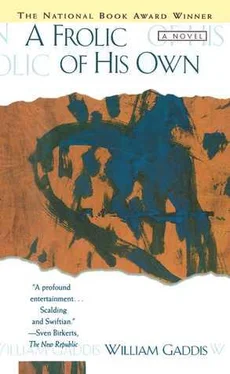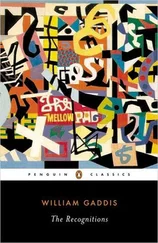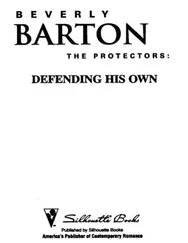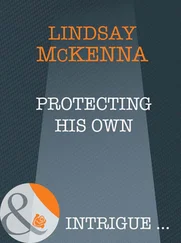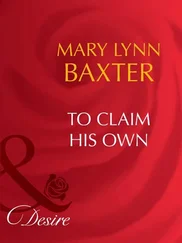Towering over this case both figuratively and literally stands the massive outdoor steel sculpture known as Cyclone Seven which occupies a freely accessible open space in the Village of Tatamount. In an earlier action before this court the creator of this unique work, R Szyrk, sought and was awarded a permanent injunction barring the Village from removing, altering or damaging this artistic structure in any manner for any reason or for none, in a suit occasioned by its clear intention to deliver forth an animal which had by misadventure strayed into and become entrapped therein (Szyrk v. Village of Tatamount, S.D. Va. 105-87). Upon appeal this judgment was struck down thus granting the Village the right of removal in the course of which it might be presumed the animal would gain its freedom; in the event, however, before these measures were carried out, Cyclone Seven was struck by a bolt of lightning, and its reluctant tenant found to have been released forever from the travails of earthly existence.
James B, Infant, acting through his curator bonis and guardian ad litem, filed an action as owner and bailor of the chattel, a dog of tender years named Spot, alleging negligence on the part of the Village, in a cross claim for indemnity under Fed. R. Civ. P. 14 the suit was joined by impleader in the person of the sculpture's creator R Szyrk whose diversity of citizenship has brought the matter before this jurisdiction under 28 U.S.C. 1332; 72 Stat. 415 (1958). The case was submitted to the jury with instructions to which plaintiff objected. The jury nonetheless found for plaintiff and defendants appeal seeking a judgment N.O.V. for the setting aside of the verdict.
The issue involved is whether the Village in its capacity as bailee, however inadvertently and unhappily arrived at, failed in its duty to bailor under the requisite standard of care and through such alleged negligence is liable for damages so incurred.
The relationship of parties in cases of bailment constitute the large body of law pursued with a vengeance over the centuries in Justice Holmes' The Common Law Lecture V 'dealing with persons who have a thing within their power, but who do not own it, or assert the position of an owner for themselves with regard to it, bailees, in a word.' In the instant case the defendant has urged dismissal of this designation arguing not only that no agreement was entered into with the plaintiff to so commit his chattel in trust for a specific purpose to be returned unharmed once such purpose was accomplished, but further that its efforts to rid itself of this unwelcome guest were a matter of court and public record. Here plaintiff rebuts, answering that whatever the originating circumstances as scrutinized in Szyrk, supra, any encumbrance was lifted by the decision of the appeals court restoring the Village as master of its own house and the duties assumed therewith. 'For the bailee being responsible to the bailor, if the goods be lost or damaged by negligence, or if he do not deliver them up on lawful demand, it is therefore reasonable that he should have a right of action' 2 Steph. Comm. (6th ed.), 83, cited Dicey, Parties, 353; 2 Bl. Comm. 453; 2 Kent, 585 as quoted by Holmes op. cit. In alleging negligence so construed, plaintiff asserts therewith the further charge of conversion linked to irrecoverable loss of the chattel wherein his claim for damages resides.
Central to actions in bailment are the concepts of possession, by the bailee, and of ownership by the bailor. We have skirted the former to return to it below in considering the charge of conversion, and proceed now to re-examine the latter as giving upon the nature of the chattel at the heart of this action.
Due to their known peculiarities and wide variety, dogs are regarded by the law as in a class by themselves, and while under ancient common law deemed to rank low as property compared to cattle, sheep and barnyard fowl, the law has since evolved to recognize them as things of value in which the rights of property generally prevail within the statutory meaning and use of the word 'chattel.' While it has been granted that dogs have no intrinsic value as dogs unlike, in our own and other civilized cultures, animals domesticated for the purpose of being eaten where a fair market value may be rendered without undue difficulty, actions for damages arising from a dog's injury or death are not confined to its owner's showing of its market value as a dog, but most frequently on evidence warranting its value attaching to such individual qualities as pedigree and rarity of breed, intelligence, talent in the field or at herding, prize winning credentials at dog shows and the like (Wilcox v. Butt's Drug Stores, 38 N.M. 502, 35 P.2d 978, 94 A.L.R. 726. See also McCallister v. 5appingfield, 72 Or. 422,144 P. 432, quoted with approval in Green v. Leckington, 192 Or. 601, 236 P.2d 335). None of these qualities distinguished thQ dog Spot. Of indeterminate breed, undetermined lineage and unprepossessing appearance, a follower not a leader, neither hunter nor gatherer, his only talent lay in his uncritical and colourblind offer of companionship the loss of which plaintiff alleged among his causes of action dismissed by the jury under instructions from this court holding that sentimental value may not be allowed as an element of damages (Wilcox v. Butt's Drug Stores, supra).
However it is well established that where an animal has little or no value for sale or consumption, that assigned to the uses to which it is put provides grounds for recovery where loss of profits in a business enterprise relying on these uses is due to its detention and wrongful taking (U.S. v. Hatahley Ca. 10 Utah) and its unjustified injury or destruction (Moses v. Southern P.R. Co. 18 Or. 385, 23 P. 498) whether by wilful act (Helsel v. Fletcher, 98 Okla. 285, 225 P. 514, 33 A.L.R. 792) or by negligence or omission (Brown v. Sioux City 424 Iowa 1196, 49 N.W.2d 853; Bombard v. Newton, 94 Vt. 354, 111 A. 510,11 A.L.R. 1402). In the case at bar, the value of the decedent as the wellspring of a burgeoning trust in plaintiff's name composed of royalty and licensing fees pertaining to its various profitable configurations as dolls, ceramic items, mugs, keychains, puzzles, T shirts, logos, comic strip rights and a projected animated series for television is plainly evident and even, in point of fact, inadvertently attested to by defendant in an earlier and wondrously ill considered action filed and dismissed in a lower jurisdiction claiming a generous share of such profits as having provided the circumstance for its notorious predicament in the first place.
Here by peradventure we re-encounter the defendant in his alleged capacity among bailees 'who have no interest in the chattels, no right of detention as against the owner, and neither give nor receive a reward' (Holmes op. cit, Lecture VI, Possession), and thence to the subsequent charge of conversion wherein plaintiff's claim embraces what might be termed the last act by defendant in this drama, referring not to Spot in vivo but, as on the corpse littered stage with which Shakespeare brings down the curtain on Timon of Athens and elsewhere, to Spot's remains, summarily removed by agents of the defendant under the eyes of the press and a wide national television audience exercising its obligation under a century old municipal ordinance mandating the speedy and orderly removal of the carcasses of dead animals as ranking in value no higher than garbage with which they share a pungent attraction to flies threatening the spread of disease germs among the local population. However an owner's property rights in an animal are not foreclosed upon its death (Knauer v. Louisville, 20 Ky. L Rep. 193, 45 SW 510, 46 SW 701), and while granting that the body of a dead animal may not pose a nuísancQ p9r se, it may be or become one in fact (Schoen Bros. v. Atlanta, 97 Ga. 697, 25 SE 380; Richmond v. Caruthers, 103 Va. 774, 50 SE 265), plaintiff has claimed that in depriving him of the opportunity to remove and dispose of the remains within a decent interval after death (Richmond v. Caruthers, supra) his constitutional property right to due process under the Fifth and Fourteenth Amendments has thereby been violated irreversibly since the whereabouts of said remains are not now known. Notwithstanding the dark commerce of the Resurrectionists Burke and Hare, corpus humanum non recipit aestimationem, but property value in the animal remains in question is attested by purchase offers in evidence from taxidermists in Chicago, Dallas and Kamakura Japan, by an enterprising glover in San Francisco seeking the pelt as a prototype for a line to be marketed as 'Hiawatha's Magic Mittens' labeled 'Genuine Simulated Spotskin® Wear 'Em With The Furside Outside,' and an urgent bid from Bao Dai's Tasti-Snax in Queens Village, New York, for purposes undisclosed. Pending a search at the Village dump defendant demurred and the charge was dismissed ex mora at the discretion of the court.
Читать дальше
